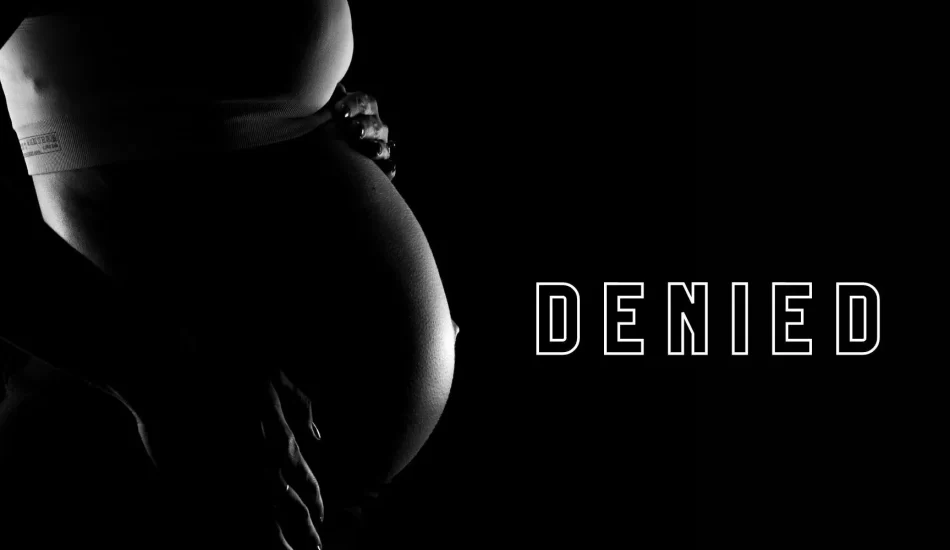Pregnant Women Denied Visitor Visas

In early 2020, the Department of State issued a new policy alert, asserting that pregnant women who seek to enter the US on a B-1/B-2 visa (for visiting friends or family or for medical treatment) will face additional scrutiny. The proposed policy aims to reduce what is known as “birth tourism,” a practice in which foreigners enter the US on temporary visitor visas while pregnant, with the intention of giving birth in the US. Under current law, children born on US soil automatically obtain US citizenship.
Trump Administration Issued Stricter Policy Regarding Visas for Pregnant Women
According to the State Department under Trump, birth tourism is a significant national security issue. However, according to a New York Times report, State Department officials conducting a policy briefing were unable to provide any examples of how this practice poses a threat to national security, and they also provided little data on how frequently it actually happens. According to officials, instances of intentional birth tourism are very hard to track.
How the administration will uphold a new, stricter policy regarding visas for pregnant women is not completely clear, as it is not lawful for consular officers to administer or require pregnancy tests during the visa interview process. Most likely, we will see an increase in discretionary denials for women who are suspected to be pregnant or who are nearing their due date, if they cannot provide a genuine reason for entering the US (such as a family emergency or need for medical procedure, rather than simply for travel and tourism). According to the new regulation, pregnant women will be subject to an additional burden of proving their trip to the US is for reasons other than giving birth to their children.
The State Department acknowledges that issues will arise regarding fully enforcing this law for a number of reasons. Many B-1/B-2 visitor visas are issued with a validity period of up to ten years, which allows for multiple short-term entries during that period. Additionally, citizens of 39 countries nationwide are eligible for a visa waiver program, which allows them to enter the US for a number of months without applying for a visa. In these instances, it would be virtually impossible to track or restrict pregnant women from entering the US.
“Birthright Citizenship” Right
Birthright Citizenship is a Constitutional right set forth in the 14th Amendment, which states that, “All persons born or naturalized in the United States and subject to the jurisdiction thereof, are citizens of the United States and of the State wherein they reside.”
While this policy may not be widely enforceable, Trump suggested he’d like to do away with the entire policy that allows individuals born on US soil to acquire citizenship. Birthright citizenship is common in the Western Hemisphere; however, many countries—including Britain, Ireland, Australia, New Zealand, and India—have restricted or abolished it in recent years.
While President Trump expressed that the government would like to challenge whether this right should be extended to undocumented individuals, he did not have the power to abolish a Constitutional right without the remaining government branches’ approval.
Under the Trump administration, denials of B-1/B-2 visitors’ visas skyrocketed. Putting restrictions on pregnant women is just one example in a long list of policies and guidelines designed to reduce overstay and nonimmigrant visa abuse. It is more important than ever for all individuals (pregnant or not) to be extremely prepared before attending a B-1/B-2 visa interview and to keep in mind that these visas are issued at the interviewing officer’s discretion, and the chance of denial is very high.
Can Pregnant Women Travel to the United States for the Sole Purpose of Giving Birth in 2023?
Following the amended regulations restricting birth tourism, questions continue to arise about whether a pregnant woman may visit the US on a valid B-1/B-2 visitor visa for the sole purpose of giving birth, regardless of whether she was granted the B-1/B-2 visitor visa prior to or after the new regulations took effect. While no particular rules restrict pregnant women with valid B-1/B-2 visitor visas from entering the United States, such entry is at the admitting US Customs and Border Protection (CBP) Officer’s discretion.
When Can Your Entry Be Denied?
If the CBP officer determines that you’re coming for the sole purpose of giving birth in the United States to get US citizenship for your child, you may be denied entry. Moreover, if the CBP officer finds that you’re likely to become a public charge, meaning that you won’t be able to afford medical care because of either lack of funds or not having health insurance and would therefore have to depend on public assistance, you may be denied entry.
When determining whether you’ll be permitted to enter the United States at the POE, the CBP officials will consider the date you’re due to deliver and the length of time you wish to stay in the United States. Additionally, they’ll want evidence that you have considerable funds or medical insurance to cover any medical necessities while you’re in the US.
Consequences of Denied Entry
Being denied entry can have a powerful impact on your future ability to travel to the US. Therefore, if you’re in the later stages of pregnancy, you might want to consider postponing travel unless you’re sure you can establish that you have the resources to pay for the birth, regardless of what complications might arise and exponentially increase your expenses.
Be sure to contact Passage Immigration Law if you have any questions or concerns about traveling to the United States. We will continue to monitor the implementation of this new rule, and our attorneys are happy to discuss tips for smooth travel and border crossing. Call to schedule an appointment today at (503) 427-8243. Or, you can schedule a consultation here.
